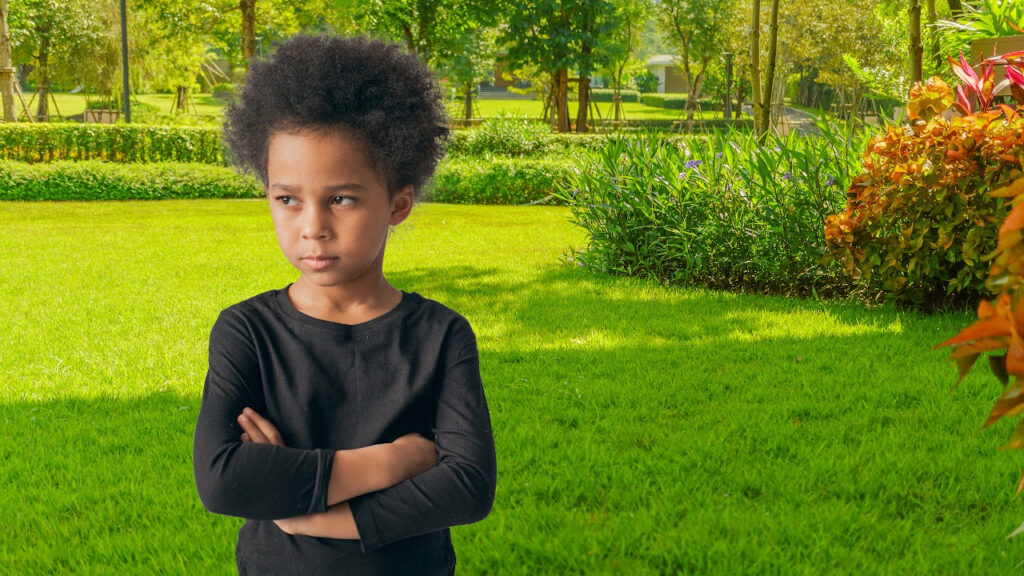This post may contain affiliate links. This means I make a commission if you purchase through my links, at no extra cost to you. Read full disclosure here.
Are you looking for ways to discipline your child? Do you have a desire to raise your children to become smart, well-rounded, kind adults, but you just don’t know how?
Keep reading for ways to teach, train and discipline your child effectively.
As a mom and veteran elementary school teacher with over 20 years of experience working with kids, I can say I’ve seen it all. I’ve learned how to discipline children from various backgrounds and of all ages.
I’ve had my fair share of opportunities to discipline children and teach life skills and responsibility. It’s no cakewalk, let me tell you!
One issue that I’ve seen become more of a challenge each year is in the area of discipline. Many parents are uncertain about how to effectively discipline their child.
If you can relate, join me as we explore strategies & techniques to help your child become disciplined.
Why is it Important to Discipline Your Child?
When you discipline your child, you teach him/her self-control and responsibility. The best place for a child to learn these skills is in the comfort and safety of their own home with their families.
Discipline teaches children the skills that are needed to be happy and successful in life. Lack of proper discipline can lead to harm and poor life choices.
Discipline extends beyond punishment for bad behavior. It does minimize and can even eliminate negative behaviors, but it’s also a life skill.
As adults, we still need to be disciplined. We understand that we can’t eat all the junk food we want, or sleep through our morning alarms. We refrain from saying and doing every single thing that comes to mind.
Sometimes we may be very tempted to make such choices, but we discipline ourselves and fight the temptation. These are the types of skills that we must teach our children.
How to Discipline Your Child Without Hitting & Yelling
There are many ways you can discipline your child without hitting and yelling. In fact, when disciplining your child, try to keep your responses calm, neutral and free of extreme emotion.
Your child is watching you and learns alot by how you respond to situations. Avoid extreme anger, yelling and hitting when disciplining your child.
I’d like to point out that there is a difference between hitting and spanking. Hitting out of anger, frustration or to harm a child is wrong.

What is Spanking?
Spanking is biblically advised. A spanking is often not needed for every single misbehavior. If a child is blatantly defiant after being taught correct behavior, a spanking may be needed.
When you need to spank your child, remember the following:
- Do not to spank when you are angry
- Have a conversation with your child about why a spanking is needed
- Spank their behind where there is the most cushion
- After the spanking, hug your child and explain that you love and care about them which is why you must discipline.
- In the Bible, God tells us that He disciplines whom He loves and we as parents must follow His example.
What Does the Bible Say About Discipline?
- Proverbs 13:24 NLT
Those who spare the rod of discipline hate their children. Those who love their children care enough to discipline them.
- Proverbs 22:6 NLT
Direct your children onto the right path, and when they are older, they will not leave it.
- Proverbs 22:15 NLT
A youngster’s heart is filled with foolishness, but physical discipline will drive it far away.
Don’t fail to discipline your children. The rod of punishment won’t kill them. Physical discipline may well save them from death.[a] My child,[b] if your heart is wise, my own heart will rejoice!
- Proverbs 29:15 NLT
To discipline a child produces wisdom, but a mother is disgraced by an undisciplined child.
- Proverbs 29:17 NLT
Discipline your children, and they will give you peace of mind and will make your heart glad.
- Ephesians 6:4 NLT
Fathers,[a] do not provoke your children to anger by the way you treat them. Rather, bring them up with the discipline and instruction that comes from the Lord.

How to Discipline a Toddler
Plan Ahead and Prevent
When you have a toddler, a great habit to practice is prevention. Try to plan ahead and foresee potential issues and prevent them.
If you know your toddler will be tired or hungry when you’re running errands, put him down for a nap, or feed him before leaving.
Pack snacks or toys in your bag to avoid potential meltdowns or misbehaviors.
Get them used to having a daily routine.
Redirect and Distract
Take your toddler’s attention off of the potential misbehavior or tantrum. If she is trying to crawl away and give you a hard time while getting dressed, distract her.
Try singing a song, playing a game, or giving her a toy to play with.
If you see a potential tantrum beginning, redirect him. If he has attention set on something off-limits, redirect his attention to something he enjoys doing. “Let’s go take the dog for a walk.”
Teachable No’s
Maximize teachable moments by modeling the expected behavior. If your toddler is yelling, avoid saying, “No! Stop yelling!”.
Try quietly speaking to her saying “Amber, please use your quiet voice. Let me hear your quiet voice.”
Praise her when she repeats your action, and any other time she remembers to use her quiet voice.
This is a great way to show your toddler the correct behavior as you’re teaching her how to behave.
Remove
There are some times when you will need to remove your toddler from a situation, or remove a privilege.
When the misbehavior or tantrum continues after redirection or teachable no’s, removal may be needed.
If your toddler continues to run through the store, say, “Stop running or we will have to leave.”
If your toddler continues to bite you while nursing, you can say, “Don’t bite Mama. No more. All done now.”, and stop nursing for a moment.

How to Discipline a Child
Set Expectations
Set clear expectations for your child before an event or activity.
“When we go into the store, we will walk, use your quiet voice, and I want you to stay with me.”
Explain Consequences
Explain what will happen if the expectations are not met.
“If you’re running, screaming, or you go to another place in the store without me, we will have to leave immediately.”
Be a Good Listener
Make sure your child feels heard. Give him your undivided attention when he is talking to you.
Teachable Moments
Maximize teachable moments by modeling the expected behavior and having conversations with your child.
If there is a movie or show that is teaching values contrary to what you believe, have a conversation with your child and teach the correct values.
Praise
Praise goes a long way. When your child makes a smart, responsible, kind choice like you’ve taught, celebrate it! Give them some praise!
Logical Consequences
Logical consequences are based on cause and effect. Be sure to follow through with consequences when expectations aren’t met.
“If you don’t eat your dinner, you will not be able to have dessert tonight.”
Spanking
Make sure your child has received teaching and clear warning of the types of behaviors that warrant a spanking. If he deliberately and knowingly disobeys, then inform him of the upcoming spanking.
Administer the spanking with love, then kindly reiterate the lesson to be learned. Afterward, love on your child with hugs and affirmation.

How to Discipline a Teenager
Set Expectations & Explain Consequences
Set clear expectations for your teenager and explain the consequences.
“This phone is for emergencies, not social media. If I find that you’re using your phone for social media, I will have to take your phone.”
Set Boundaries
Teenagers need you to set clear boundaries for them. Set the boundaries and follow through with established consequences when needed.
“You may hang out with your friends, but you must be home and in your room by 9:30pm.”
Establish a Relationship
Spend time with your teen and establish a good relationship. Praise them when they do well. Build trust, foster love, and be a good role model.
During disagreements, do not argue with your teen. You are the adult, and you are responsible for them and their well-being.
Loss of Privilege or Opportunity
If a rule is broken or an established expectation is not met, follow through with the consequence. They may not be ready for freedom yet.
“You chose to create a social media account after we established that you would not. As a result, I will take your phone until you’ve shown me that you can be responsible and stick with what we agreed to.”
Natural Consequences
Natural consequences should teach your teen a life lesson. For some teens, this may be the best way to learn.
“You chose to play ball near the house after I asked you not to. Now, since you broke the window you must pay to get it fixed.”
Summarizing How to Discipline Your Child
There are many ways to discipline your child at different ages and stages of life. Discipline is absolutely necessary to teach your child self- control, responsibility and life skills.
The Bible speaks of the importance of discipline multiple times. It’s to our advantage as parents, to take heed, and train our children up in the way that they should go.
Only then, can we rest assured that they won’t depart from it when they get older.







